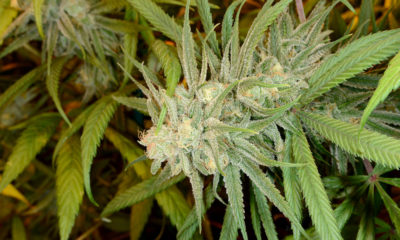One of cannabis’s many persistent mysteries is why all stoners aren’t enormous. Marijuana use does often stimulate appetite and is associated with higher caloric intake. Cue the parade of extremely fresh snack-food “jokes” in “edgy” media when cannabis is mentioned.
And yet, research has revealed the opposite result.
Studies conducted on the matter have actually found significantly lower rates of obesity in marijuana users when compared to non-users, a conclusion that both potheads and scientists have found somewhat baffling.
Intrigued by these findings — and working in a state where voters legalized recreational cannabis use in November — researchers at Michigan State University crunched more data culled from the National Epidemiologic Survey on Alcohol and Related Conditions, or NESARC. The findings, titled “Are cannabis users less likely to gain weight? Results from a national 3-year prospective study,” from researchers Omayma Ashaarawy and James C. Anthony, were published in the International Journal of Epidemiology on March 16.
So, What’s the Skinny?
The batch of data Ashaarawy and Anthony analyzed allowed them to follow both survey respondents’ weight-gain (or loss) and their cannabis use (or abstention). And what they found is consistent with the earlier findings: Despite cannabis users’ reported increased caloric intake, there is a “negative association” between cannabis use and increase in body-mass index, or BMI.
“Evidence shows attenuated [that is, reduced] body mass index gain for cannabis-use subgroups when compared with never-users,” the researchers wrote. “[O]ur findings suggest a cannabis-associated attenuation of BMI gain.”
That is, cannabis users still enjoy healthier weights — itself a thorny term, as there are myriad examples of healthy people with “high” BMIs and rail-thin people with problems — than non-users.
Very few of the study respondents copped to using cannabis. 77 percent of survey respondents said they had never used in their lifetime, 18 percent had used and then quit, 3 percent were new users, and 2 percent were persistent users. And of the 5 percent who admitted current marijuana use, all were under 66 years old, before the age when BMI decreases across the board due to loss of muscle mass.
The researchers also found something interesting within the three sub-groups of cannabis users surveyed: past users, new users, and consistent users. After controlling for other factors including age, tobacco use and alcohol use, it was the consistent cannabis users who enjoyed the lowest BMI gains of the cannabis sub-groups.
Unanswered Questions
Why don’t stoners get very huge and soft? Why is the stereotype of the perpetually stoned guy lying on the couch, absorbing calories, actually just bogus hogwash? That’s the very expensive question. And although theories about increased metabolism and reward systems have been put forward, nobody seems to know for sure.
The study doesn’t control for other important factors like physical activity and is very careful not to suggest any direct causal links. Put another way, we don’t know what the cannabis use itself is doing. There could be changes in diet and exerciseamong the stoners that make the difference. Further complicating matters is that the cannabis users cohort is very small — only a few thousand people — compared to the 26,000 non-users in the study, which is also based on self-reported data.
But one reason, the authors posited, is good news for medical cannabis advocates. There is a link between inflammation and obesity, and when the CB2 receptor in the endocannabinoid system is activated, there are observed anti-inflammatory effects. This could very well account for the higher caloric intake and the lower BMI observations. Or not. One thing is for sure: More research is necessary, and with more and more states legalizing recreational cannabis, more data will be forthcoming.
TELL US, do you think smoking weed has kept you svelte?

























